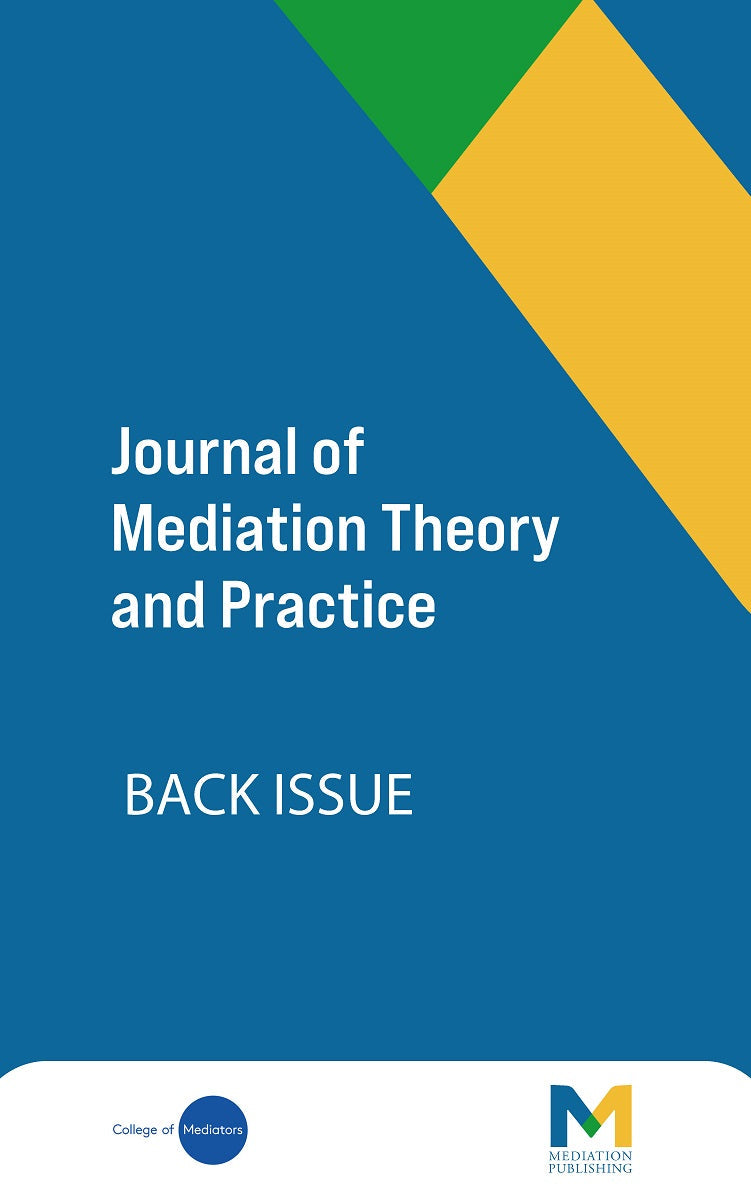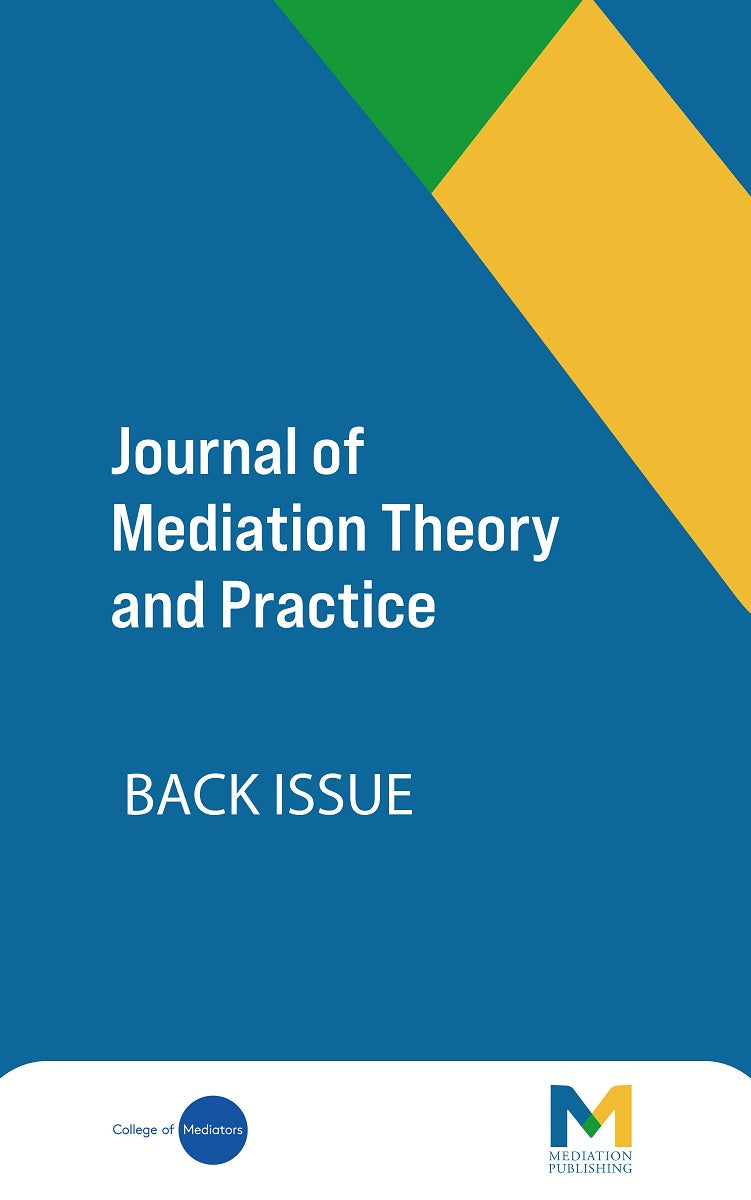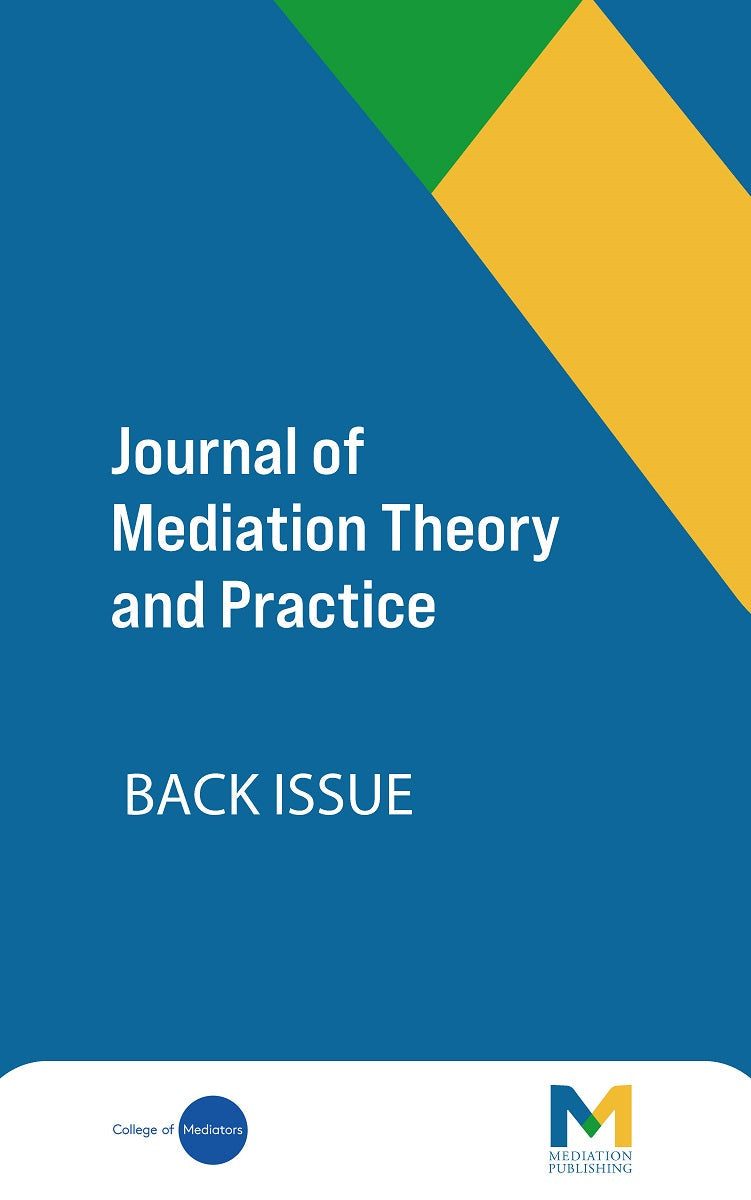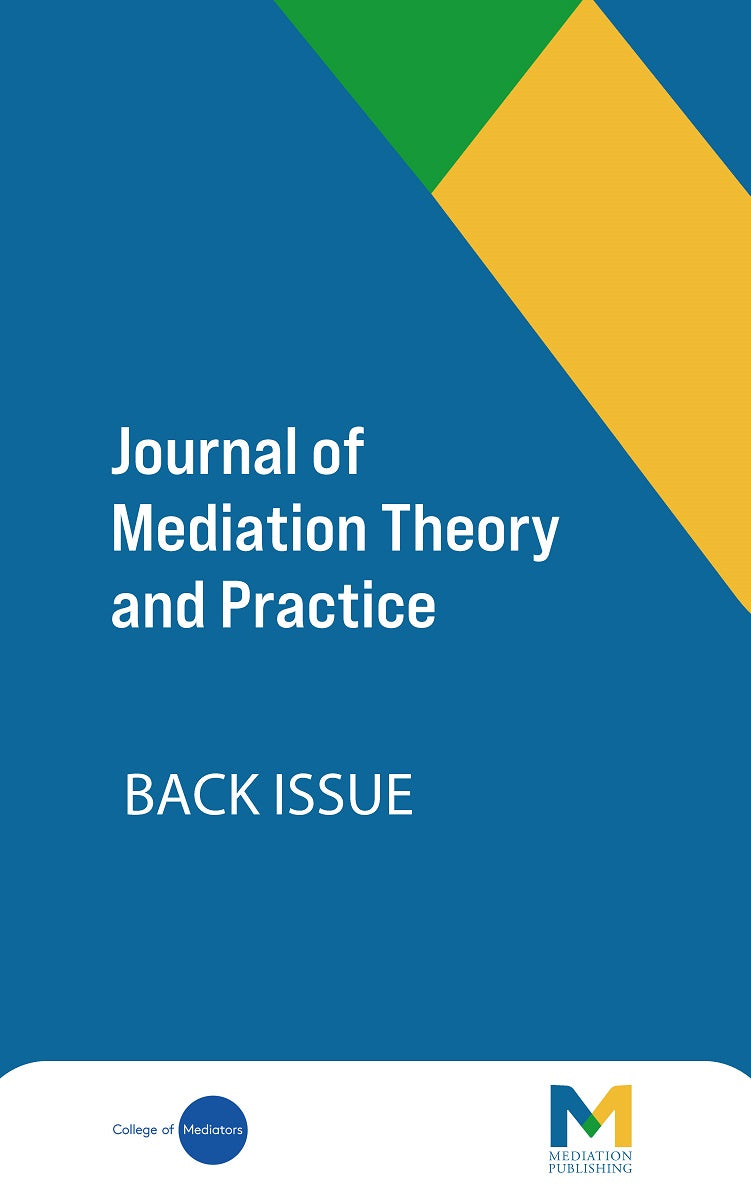Mediation Publishing
Journal of Mediation Theory and Practice Back Issues: 2016-1
Journal of Mediation Theory and Practice Back Issues: 2016-1
Couldn't load pickup availability
The back issue(s) for the year above for the Journal - Mediation Theory and Practice.
These issues were published by Equinox Publishing and will be despatched promptly after order, sometimes separately to other items you might order.
Individual articles are also available for purchase by download separately through the title links.
Contents for 2016-1
Research Article: At the nexus of big data and dispute resolution: A case study on conflict-related search data by Justin R. Corbett, Advancing Dispute Resolution. This paper presents findings from an ongoing project that has analysed over 225 million annual online conflict-related search queries to better understand the scope and scale of conflict in America. The frequency, location, sentimentality and timing of 52,203 unique conflict search terms were monitored for every US county. Analysis has revealed the public’s collective interests and conflict intensities within 225 distinct conflict contexts, many of which have cyclical trends that can inform resource development and deployment efforts. It has allowed for the creation of maps detailing where conflict arrests or avoids local populations. Finally, it has revealed new insights into how the public prioritises frames for their conflicts and their preferred resolutions. Creative integration of traditional and previously unaligned data, such as presented here, will change the dispute resolution field with regard to its understanding of the dispute resolution marketplace, the surfacing of opportunities to satisfy that market, and the ability to monitor the resulting impact of interventions from the personal to broad societal levels.
Research Article: ‘I need to get some details first’ Record keeping as a potential barrier to effective complaint-call management by Ann Weatherall, Victoria University of Wellington. In this article, I examine audio recordings of telephone calls to an independent dispute resolution service in which customers complained about their electricity, gas or water providers. Part of the job of the intake officers (who answer the calls) is to enter relevant information about the caller and the complaint into a computer software system called RESOLVE. A dataset of 120 calls were analysed using conversation analysis. Although there was no fixed order for registering caller and complaint details, intake officers regularly prioritised registering caller details. Sometimes that meant interrupting callers as they were describing their problem. On the whole, callers who were interrupted co-operated with the intake officer, but an analysis of a call is presented where the caller did not co-operate. The findings support a recommendation for flexibility in the order of activities that achieve telephone-mediated dispute resolution. Being flexible is most likely to effectively progress the interaction to accomplish the institution’s business in this case. Flexibility may be a general principle for the delivery of an effective dispute resolution service.
by Alan John Rycroft, University of Cape Town. Judicial understandings of mediation in the context of South Africa’s Commission for Conciliation Mediation and Arbitration are evaluated from reported decisions where a party sought to set aside a settlement agreement. What is apparent is that courts generally understand that the process of mandatory mediation can be robust and evaluative. The acceptable borderline for advice-giving, scenario-setting, pressure to settle and monitoring the settlement agreement is fact-specific. There is sufficient discrepancy between the cases to show that judicial assessment varies. Generally the courts seem to have no great concern over the breach of mediator confidentiality required in judicial review and none of the commissioners refused to cooperate in the review process.
Shipping & Returns
Shipping & Returns
We ship worldwide.




